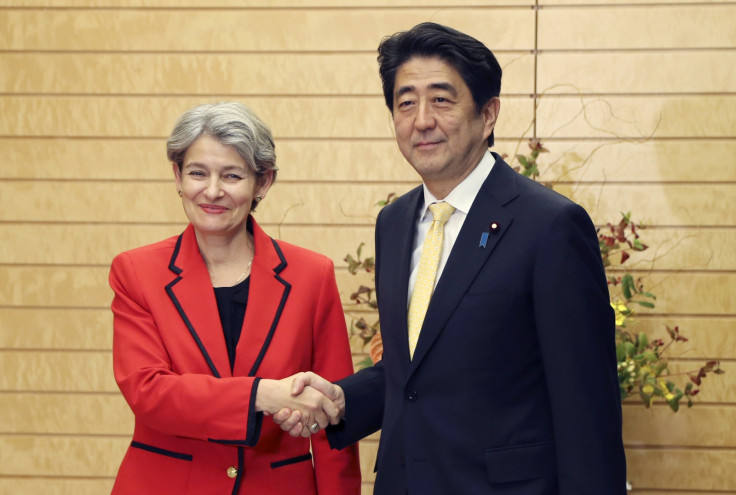Okinoshima: Island where women are banned set to become Unesco World Heritage site
Shinto priests on sacred Japanese outcrop take strict line against women and curiosity seekers.

An ancient Japanese island where women are not allowed to set foot is set to become a Unesco World Heritage site.
Okinoshima, a small island off the south-western coast, has been recommended to the UN cultural body by Japanese authorities. A final decision is set to be made by the Unesco World Heritage Committee in July.
Although the body is likely to approve the bid, the site is considered so sacred that the Shinto priests who preserve the island are expected to turn most visitors away.
The island, which is less than 0.3sq miles in size, is considered holy because it houses the famed Mundakata Taisha shrine, a site fishermen have been visiting since the fourth century to pray for safety.
Women have reportedly been barred from the island because of the "impurity" associated with their menstruation cycles.
Others have speculated that the ban is for their own safety as the crossing to the island is considered too dangerous for them.
Men visiting have to strip naked and perform an ancient cleansing ritual before being allowed onshore.
Nothing can be removed from the island, not even a blade of grass. Priests even try to stop people from writing anything about the place.
Even with World Heritage Unesco status, the strict practices are likely to persist.
"We wouldn't open Okinoshima to the public even if it is inscribed on the Unesco Cultural Heritage list because people shouldn't visit out of curiosity," Takayuki Ashizu, the chief priest at Munakata Taisha, told Kyodo in an interview.
"We don't want people to approach the gods without due reflection."
Okinoshima recommended for UNESCO heritage list; 4 other sites rejected https://t.co/LOUnZrQNNR pic.twitter.com/wvupKtpqmY
— Japan Today (@JapanToday) May 6, 2017
© Copyright IBTimes 2025. All rights reserved.






















